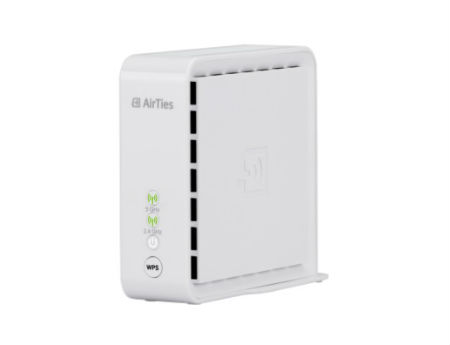AirTies Mines for More Whole-Home WiFi Gold
The smarter way to stay on top of the multichannel video marketplace. Sign up below.
You are now subscribed
Your newsletter sign-up was successful

Looking to replicate the success it’s had across the pond pitching smart, in-home WiFi systems to Internet service providers, AirTies has planted its flag in North America and identified its first customer in the region – Midcontinent Communications.
AirTies, a company formed in 2004, cut its teeth in the Europe, where WiFi and other wireless technologies faced challenges of breaking through the building construction that’s prevalent in the region – namely a lot of brick walls. While speedy home networking technologies such as Multimedia over Coax Alliance (MoCA) and powerline offer wired-based option, AirTies took the all-wireless route with a platform made up of a mesh of high-octane access points that are powered by an automated networking management platform that’s designed to steer signals through the best path in the home.
That approach has helped AirTies land some sizable clients, including Sky in the U.K., Germany, Austria, and Italy, Vodafone, Singtel, and Swisscom, among others, and it believes that it can duplicate that success with U.S.-based operators.
In the U.S., video streaming “has put a lot of pressure on the home network,” Bulent Celebi, AirTies’ executive chairman and co-founder, said. He said typical in-home setups that rely on a primary access point are challenged because signals become weaker and performance is impacted as mobile devices are used in different parts of the home.
He said mobile clients tend to make “poor decisions” on where to connect and turn into “bad apples” on the home network. AirTies attempts to remedy this and boost performance through the use of multiple access points connected to an intelligent network management system that coordinates traffic and dynamically signals through the best route.
To pursue opportunities on this side of the pond, AirTies has spent the last year and a half setting up an operation in Silicon Valley, and today named company vet Oz Yildrim as EVP and GM of North America, who will be based in Sunnyvale, Calif. Celebi said AirTies currently has about five people stationed here, and expects to hire “well over a dozen” people for North America within a year. AirTies currently has 275 employees.
As for its first U.S.-based customer, Midcontinent, the MSO will tap AirTies’s Air 4920 access points (pictured), which bake in dual-band WiFi (2x2 802.11n at 2.4 GHz, and 3x3 802.11ac at 5 GHz), two Gigabit Ethernet ports, and support for the company’s WiFi Smart Mesh and Client Steering technology. Those APs can be connected through a mix of technologies, including Ethernet, MoCA, powerline-based platforms and AirTies’ own wireless mesh systems, the company said
The smarter way to stay on top of the multichannel video marketplace. Sign up below.
Midcontinent, an operator that serves more than 300,000 subs in parts of Minnesota, North Dakota, South Dakota and Wisconsin, is expected to launch its AirTies-powered platform later this year, but has not announced how it will be priced. Midcontinent has also hatched a plan to bring gigabit speeds to its entire footprint by the end of 2017.
“At Midcontinent, we see our customers’ bandwidth consumption doubling every 18 months – and more devices than ever are dependent on the in-home wireless network,” said Jon Pederson, CTO of Midcontinent, in a statement. “The AirTies approach will help our customers enhance their in-home wireless performance and coverage.”
Celebi said AirTies partners have marketed its technology under a variety of models, either selling it directly, making it part of subscription-based, premium WiFi offerings, or including it with speed upgrades.
He said AirTies already has trials underway with some big, but still unnamed, U.S. operators, and noted that the company can license its technology to other modem and gateway vendors.
And AirTies does expect to compete with traditional gateway and set-top box suppliers as MSOs look to shore up their whole-home WiFi strategies, but hopes that its network intelligence system will serve as a differentiator.
Modem/gateway suppliers such as like Arris have been beefing up their gateways to pump more wireless speed in the home, and others, such as Actiontec, have been aggressively pursuing the whole-home networking opportunity with carriers. On the MSO side, Bright House Networks has shored up its whole-home capabilities with “Echo,” a program that pairs wireless gateways with access points that are installed at different cable outlets in the customer’s home.
